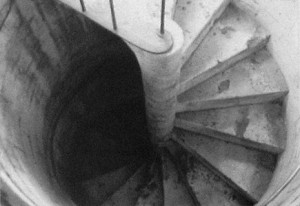NOTE: This series is an exploration of my personal theology, which I tend to hold lightly. It is subject to change as I gain new insights. Also, no one should interpret anything I say as the “one true doctrine.”
Happy Monday, dear readers. For today’s polytheology post and in honor of Samhain/Winter Nights,1 I thought it would be good to talk about the importance of the ancestors in my theology. After all, not only are we in community with our fellow humans and our deities, we are still in community with those humans who went before us, who laid the foundations for the world we currently live in and continue to shape.
I originally became aware of the practice of some Pagans to honor the ancestors when I spent time in Ár nDraíocht Féin. In their rites, they welcome three groups of beings to join them: The gods, the ancestors, and the nature spirits, making offerings to each of them in turn. In time, I learned that more Pagan groups had similar traditions or practices.
As time went by, I came to understand why this was so important. I began to see that much of my Pagan spirituality was about being in community with others, including non-humans (and non-living humans). I came to understand that all of us — humans, ancestors, deities, and nature spirits — were meant to work in cooperation to shape the world we live in. I’ve written about this kind of mutual cooperation with our deities for such a goal:
I think this mutual need shapes a different kind of relationship between deities and humans than one suggested by religions that posit an all-powerful, authoritarian deity. Our deities must cooperate and even negotiate with us rather than handing down commandments from on high. This puts us on more equal footing and allows us to meaningfully consent to any relationship with them. It also suggests that we are all a part of that One Eternal Reality, trying to work communally to shape it into something beneficial for all.
So why is it important to have such a cooperative relationship with our ancestors? In my mind, the short answer to that question is “continuity.” After all, our ancestors began shaping wyrd long before we came along. They had a vision and I think that understanding and appreciating that vision is an important part of continuing the work that they began.
It’s important to note that our own vision for the world may not look the same as the one our ancestors had. That’s to be expected, as things have changed since them. And in some cases, I’m sure our ancestors’ vision was imperfect and not something to be continued.2 After all, if we do not think our deities are perfect sources of wisdom, why would we think better of our human forebears?
And yet, I also think their vision is not totally without merit. Sometimes, there is a fragment of something truly beautiful worth pulling out, embracing and expanding upon. Perhaps it’s an ideal that they expressed, but failed to live up to.3
I also think it’s necessary to understand their vision to understand how they created the world that they left for us. In understanding that, we can better figure out what to do with it, and even how to fix the flaws they left behind and/or created through their ignorance and prejudices. And sometimes, it’s necessary to understand why some things need to be dismantled and built over by starting with a better foundation.
In the end, I think that even when we dismantle certain things from the past, we honor our ancestors. In such acts, we acknowledge their humanity, complete with all its imperfections. And hopefully, it causes us to examine our own humanity and our own imperfections. May it be so and may it lead us to considering what foundations we leave our own descendants (both biological and otherwise) to work with in the future.
Post History: I wrote the first draft of this post on November 3, 2024. I proofread, revised, and finalized it on November 4, 204.
Footnotes
- One of the things that I love about Winter Nights is that it lasts for more than a single day. In fact, the way groups like The Troth calculate it, it lasts from one full moon to the following new moon. That’s a fortnight of ancestrally goodness! ↩︎
- For example, there’s no escaping the truth that a good number of my ancestors were colonizers. That is a vision I do not wish to continue and try to find ways to break away from. ↩︎
- Like those founding fathers who boldly stated “all men are created equal” while practicing slavery. What they said was true and valuable. We just need to practice it more fully than they did. ↩︎

